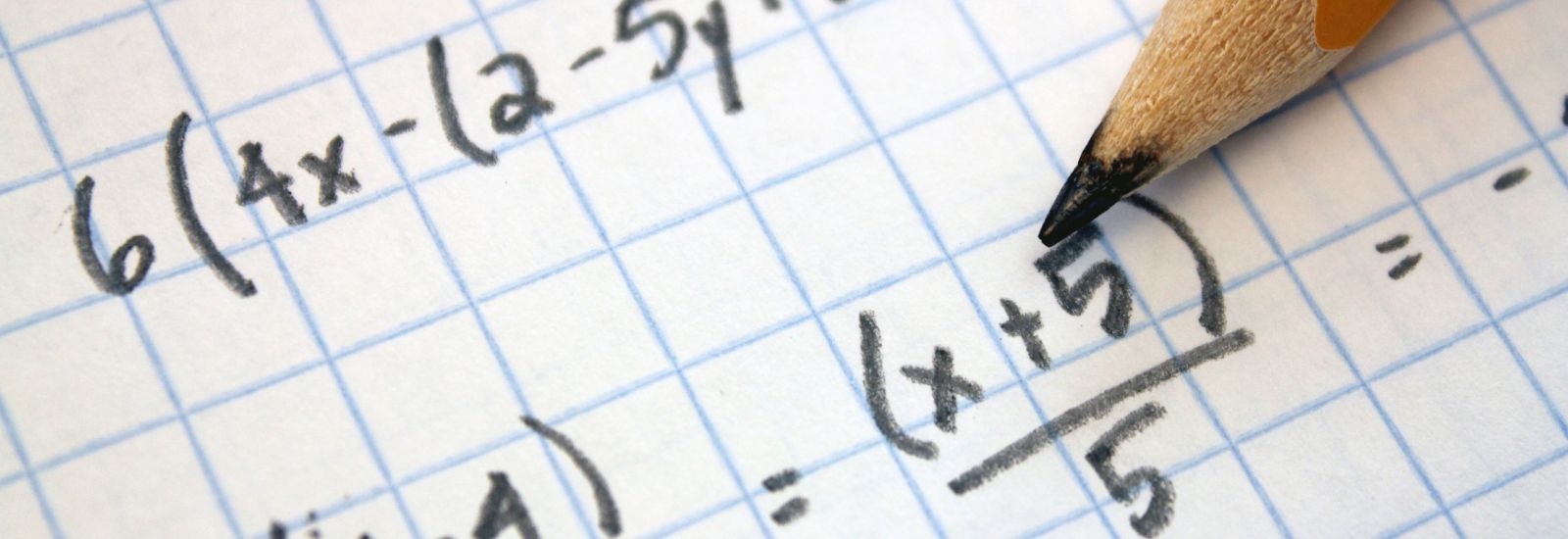
Chris Hollings
I could see there were certain things that she was good at: big, overarching ideas. But the nitty gritty of doing algebra, actually manipulating symbols on a page – she wasn't great at that!
What’s significant about Ada in terms of the history of maths?
That is the question we’re trying to answer. She’s hailed as a pioneer of computer science and a brilliant mathematician. There’s some backlash, particularly against the claim that she was a brilliant mathematician, by people who say ‘No, she was stupid!’ So there are two very fiercely opposing camps. No one has looked in detail at the mathematics that she learnt. This is why I was asked to go down to look at her papers in the Bodleian and look at the maths that was in there, to try and give an objective assessment.
And what was the result?
It’s somewhere in the middle, as you’d probably expect. I could see there were certain things that she was good at: big, overarching ideas. But the nitty gritty of doing algebra, actually manipulating symbols on a page – she wasn't great at that!
There are letters between her and a mathematician called Augustus De Morgan – UCL’s founding professor of mathematics. She did what was essentially a correspondence course with him. And so what we have are a lot of letters where she asks him questions. I think that’s another reason why people have dismissed her, because she’s always asking questions – but of course she is, she’s learning.
So – if I can make a distinction – she seems to have a significance in the history of computer science; however, her significance within the history of mathematics is – in terms of the maths she did – not huge.
But she did seem to have a far-reaching vision for what Babbage’s machines might do. She had the idea of where things might go, and that’s why her writings have been picked up in the 20th century. Since we've actually had computers, people have looked back and seen that, yes, she said they might do this.
What is the claim she was the first programmer based on?
Well, her only published piece is a translation of someone else’s report of a talk Babbage gave. Ada published this piece in a journal that specialised in publishing scientific translations and she added lots of notes of her own, and it’s those notes that are her claim to fame. Within these there is a procedure by which the engine might be set to work calculating so-called Bernoulli numbers.
It’s controversial how much of that work is hers; what’s your view?
There are traces in letters between her and Babbage where Babbage helps her with some of the details. So again this is the cause of some debate: is it really her work or is it just Babbage working through her? Which is, I think, a bit unfair. I think most of it is her. And when you get into the insights where she’s talking about what the machine might do, I think that’s definitely her.
When people talk about Ada, it’s impossible to ignore her character – do you think that had a role in how successful she was?
Yes – in that she wasn’t shy. She was quite a go-getter: she wrote to Michael Faraday to enlist his help in understanding something, just out of the blue.
Do you think she really did have something or do people get more excited by her personality?
I think generally people have been excited by the combination of her being Byron’s daughter and interest in the fact that she was an aristocrat. Computer scientists have a much more detailed understanding of what she did, and some are excited by it.
Is most of your work about great personalities, great mathematicians, or more about movements that moved maths forward?
My wider work is a long way removed from this. One of the things I study is the development of modern algebra: mostly where ideas come from, rather than focusing on individuals. I research individuals along the way, but it’s the ideas that drive it.
How did you come to specialise in the history of mathematics? What first grabbed you?
I don’t know, to be honest. I started out as a mathematician, but I was always interested in the history and I wanted to learn about the history of the area I was working on. I went to the library and found that there was nothing on it, so I began to look into it myself. In the end I made the switch over from mathematics to the history of mathematics.
In terms of all the periods of the history of maths that you’ve looked at, can you identify any dynamic periods or people that moved maths forward?
I think there were certain people in the 19th century, like De Morgan, who drove the move towards more abstract mathematics by recognising that you didn’t need to be tied to the properties of numbers, which had been known for centuries; the idea was that you can move beyond that, you can work with systems based on rules that are not the familiar ones from arithmetic – that’s a big step forward.
What gives you most job satisfaction?
Well, I think the fact that you’re asking me that this week, the first week of term, means that I have to say teaching. I teach the history of maths course in the department and I’ve just had my first lectures of term. I felt that they went well, so I’m still on a high from that. The students seemed to be very engaged immediately, so I was very happy with that.